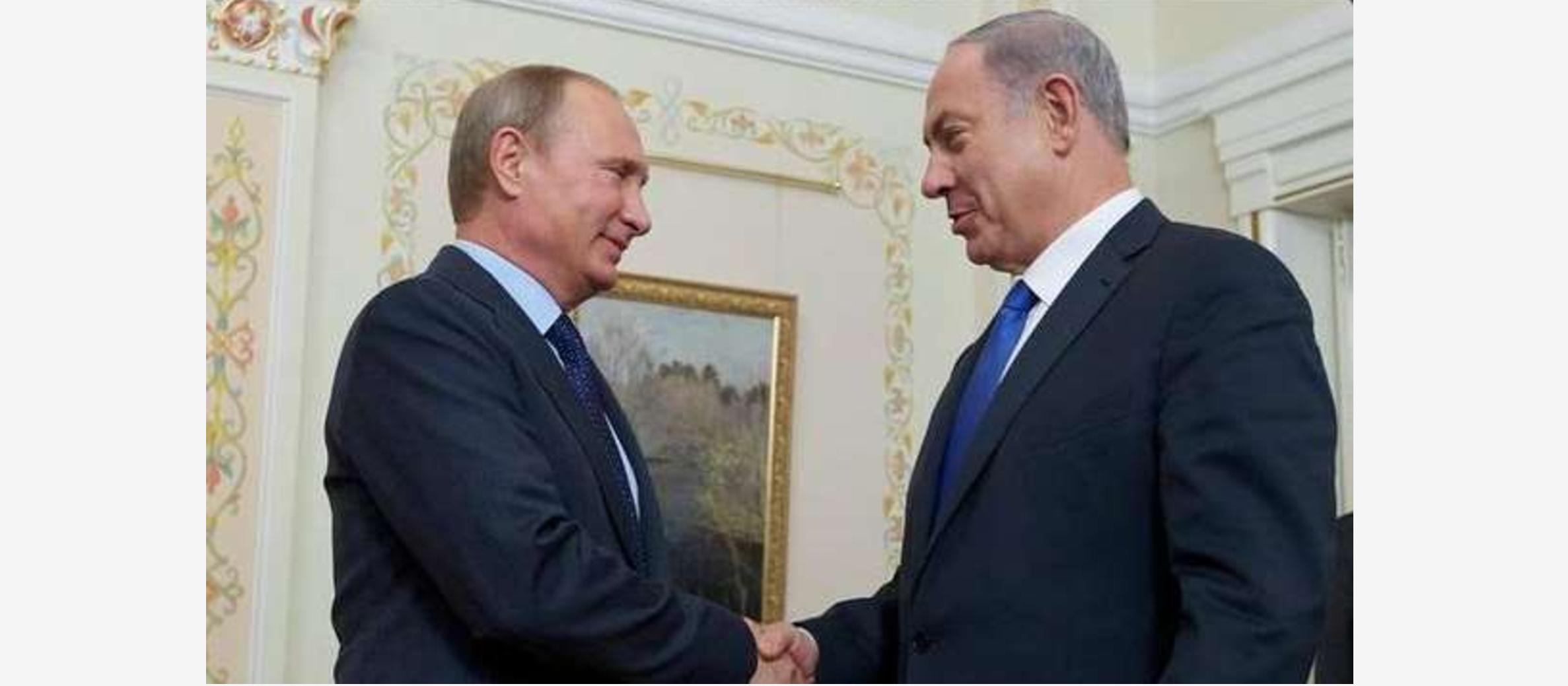(Jewish News)
Israeli Prime Minister Benjamin Netanyahu has received assurances from Russian President Vladimir Putin about Moscow’s increased involvement in Syria, in a meeting between the two leaders this week.
The timely meeting comes after an influx of Russian jets and tanks in recent days, and the proposed deployment of 2,000 troops. Analysts say Putin is setting up a ‘forward operating base’ in Latakia, where Russia already has a naval presence.
https://twitter.com/ILNewsFlash/status/645961948216094724
Satellite images show that there are now 16 Russian fighter jets at the base, an increase from just four only days ago, and U.S. officials said this week that advanced radar and surface-to-air missile systems had been deployed there.
Israel has a longstanding concern about what it calls “game-changing weapons” getting into the hands of Hezbollah in Lebanon, which is fighting alongside the Syrian government in the war. It also worries that advanced Russian jets will now fly over Syrian airspace, where Israeli jets and drones have been known to operate, so military co-ordination was high on the leaders’ agenda.
For the visit, Netanyahu brought Israel’s military and intelligence chiefs – an unusual step, and a sign of Jerusalem’s mounting concern about an escalation.
After the meeting, Netanyahu said they had agreed a mechanism to co-ordinate military action in Syria, to prevent their troops from accidentally exchanging fire, adding: “Israel and Russia share a common interest to ensure stability in the Middle East.”
Putin in turn acknowledged Israel’s concerns, and gave verbal assurances, saying: “Our main goal is to defend the Syrian state.”
Analysts agree that Israel may not be against Russian involvement. Although he is no fan of Syrian President Bashar al-Assad, a Russian ally, Netanyahu knows that without the secular Assad in power, Damascus would be overrun by jihadists, who would be even less welcome along Israel’s northern border.
But the relationship between Israel and Russia is complex. With over one million Russian speakers in Israel, the two countries have close ties. Diplomatically, they are pragmatic, with Israel silent over Russia’s involvement in Ukraine, and Russia muted in its criticism of Israel’s actions in Gaza.
But the two have also been at odds over several issues, most recently Russia’s plan to sell its advanced S-300 missile system to Iran, after world powers concluded a nuclear agreement with Tehran.
As talks between the two men concluded, reports emerged of 75 heavily-armed, U.S.-trained rebels crossing into Syria from Turkey, to fight Islamic State. Analysts say the lack of secrecy is worrying: the last U.S.-trained rebels to enter Syria were killed within days of their arrival, leaving only nine fighters.
Source: Jewish News










